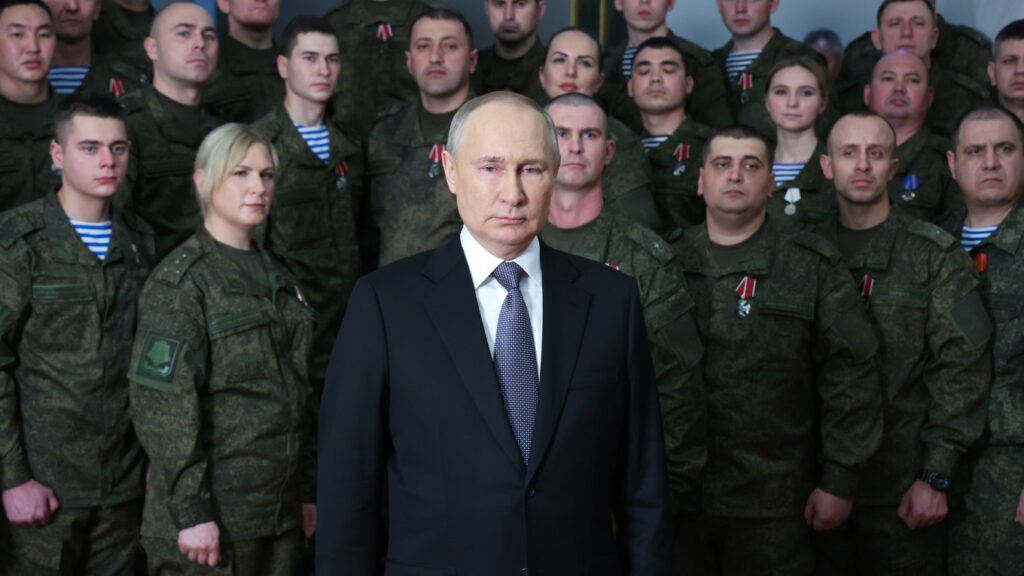
The foto has taken from moscow times
STRATEGIC ASSESSMENT. Russian disinformation efforts aimed at shaping public perception and political dynamics across Europe are proliferating in the lead-up to the EU parliamentary elections. Employing a range of deceptive tactics, including the dissemination of false narratives through fake websites, orchestrated social media campaigns, and bribery, Russia seeks to sway electoral outcomes against pro-Ukrainian and pro-EU parties. On the one hand, there are direct attempts to influence the elections through Russian state media and the bribery of members of the European Parliament (MEPs), as intelligence services have revealed. On the other hand, there is the more insidious dissemination of disinformation, particularly linking crucial voter concerns with Ukraine, which poses a significant challenge regarding accountability and transparency.
At the beginning of April, Belgian Prime Minister Alexander De Croo issued a stark warning after Belgian intelligence uncovered an extensive influence network operated by Russia, spanning multiple European countries. According to Belgian intelligence, Russian operatives have approached several MEPs, enticing them with financial rewards to endorse positions favorable to the Kremlin. The overarching objective is to diminish European backing for Ukraine, which would significantly advance Russian interests on the battlefield.
In March, an investigation was started into Voice of Europe, a Czechia-based propaganda outlet financed by pro-Russian Ukrainian oligarch Viktor Medvedchuk, which allegedly paid MEPs to spread anti-Ukraine narratives and amplify Russian propaganda. Initial reports suggest involvement from officials in Germany, France, Poland, Belgium, the Netherlands, Hungary, and Czechia. The Dutch paper Nrc further implicates far-right populist parties like le Rassemblement National in France, Vlaams Belang in Belgium, and the Alternative für Deutschland in Germany. If confirmed, it highlights Russia’s strategy of targeting countries with significant far-right constituencies – a calculated exploitation of discontent about the feeling of being left behind by the EU in favor of a globalist agenda among pockets of the European electorate.
Russian influence operations online are also in full force, with reports that the known disinformation network, Doppelganger, is widely disseminating anti-Ukraine narratives through targeted Facebook ads in languages such as French and German. Research by AI Forensics shows that the Doppelganger influence network on Facebook has reached over 38 million users in France and Germany, indicating Russia keenly understands that, due to their populations, these two countries have significant representation in the European Parliament. While there are pockets of vulnerability it can exploit, particularly among Euroskeptics, the far-right, or isolationist factions in Europe, most Europeans support ongoing aid for Ukraine and welcome Ukrainian refugees in their countries, according to the Fall 2023 Eurobarometer opinion survey.
In recent weeks, Germany and France especially have faced targeted efforts to influence public opinion and politics. For example, a fake French army recruitment site encouraged citizens to enlist in the Ukrainian conflict. Additionally, a video falsely alleging that Ukrainian soldiers were spreading tuberculosis in France was circulated under the logo of a reputable French news outlet. In Germany, leaked documents from the Kremlin show that Russia’s strategy involves forming an antiwar coalition using elements from both the far-left and far-right to undermine support for Ukraine in the country.
Recent polls for Germany show an inverse correlation between the projections for the Ukraine-skeptic far-left BSW and the far-right AfD party in the upcoming EU elections, indicating alignment with Russia’s efforts. Moreover, fake accounts disseminated over one million German-language messages criticizing the government’s support for Ukraine, revealing interconnections between far-right, far-left, and pro-Russia information ecosystems in Germany.

Moscow also leverages other methods to disrupt European politics. After Russia’s full-scale invasion of Ukraine, the EU offered candidate status to Georgia and Moldova. In response, Russia has actively attempted to sabotage their accession. While the Georgian public overwhelmingly supports EU integration, the ruling Dream Party, believed to be beholden to Russian interests, has been accused of sabotaging Georgia’s EU aspirations. In April 2024, the Georgian parliament passed a restrictive “Foreign Agent Law,” which echoes Russian laws regarding media organizations and civil society. It would force NGOs, think tanks, media organizations, and campaign groups that receive foreign funding to declare themselves “foreign agents.”
Officials in Brussels have criticized Georgia and stated that the bill is a deliberate attempt to strain relations with the EU, especially after warnings last year, when the legislation was first proposed and subsequently abandoned due to protests, that such proposals were incompatible with EU values and standards. Thousands took to the streets in Tbilisi, Georgia’s capital, over the weekend to protest the Foreign Agent Law.
Similarly, in Moldova, where EU accession is also popular, but the ruling party is also pro-EU, Russia has been more overt in its disinformation tactics. Moldovan authorities have exposed a detailed Russian interference campaign. Pro-Russian businessman-politician Ilan Shor, orchestrated payments to ordinary Moldovans to participate in anti-government and EU street protests. Moldovan media also exposed a Russian-backed anti-government cyber offensive conducted through fake social media accounts. Moldovan, U.S., and Ukrainian intelligence agencies, alongside news media, have reported on covert Russian efforts to weaponize information and corruption, aiming to undermine Moldova’s democracy and governance and sabotage EU ascension. Moldova’s pro-European president, Maia Sandu, whose re-election coincides with an EU referendum, has stated that Russia plotted a coup against her government. The upcoming 2024 EU parliamentary elections will be instrumental in securing Moldova’s future with the bloc.
With a record number of global elections approaching, Russian interference outside its purported “sphere of influence” has intensified. A leaked Russian internal document, uncovered by The Washington Post in April, has officially confirmed Kremlin disinformation tactics surrounding its full-scale invasion of Ukraine for the first time. These disinformation campaigns and strategies target the U.S. and European allies across military, political, economic, and psychological sectors. The document outlines Moscow’s use of the Ukraine conflict to undermine American global influence, disrupt Western politics, and strengthen alliances with China, Iran, and North Korea.
U.S. intelligence officials have warned that Russia often attempts to portray these elections as “dysfunctional” and prime populations for “illegitimate” results. Experts have also warned policymakers of Moscow’s efforts to empower U.S. and European isolationists, destabilize Latin America, and inflame the conflict in the Middle East to shift focus away from its disinformation tactics.





